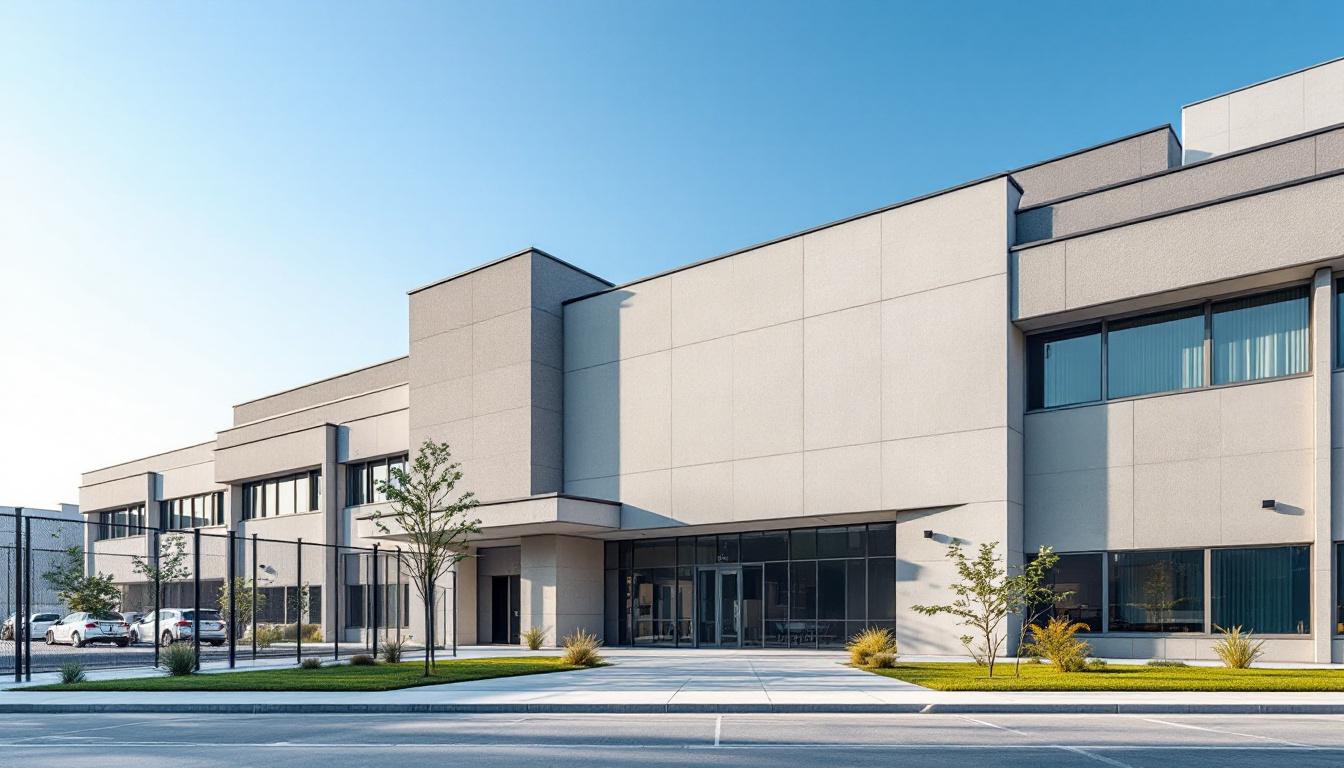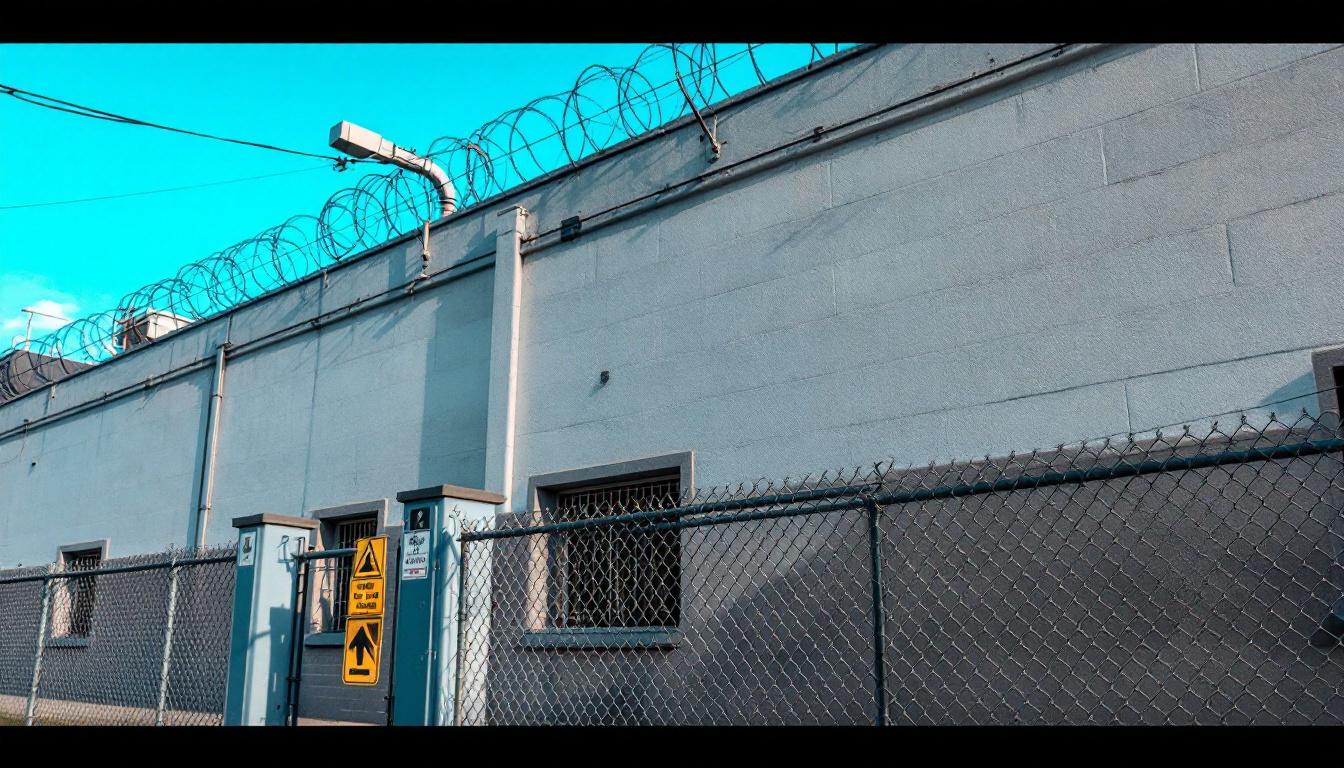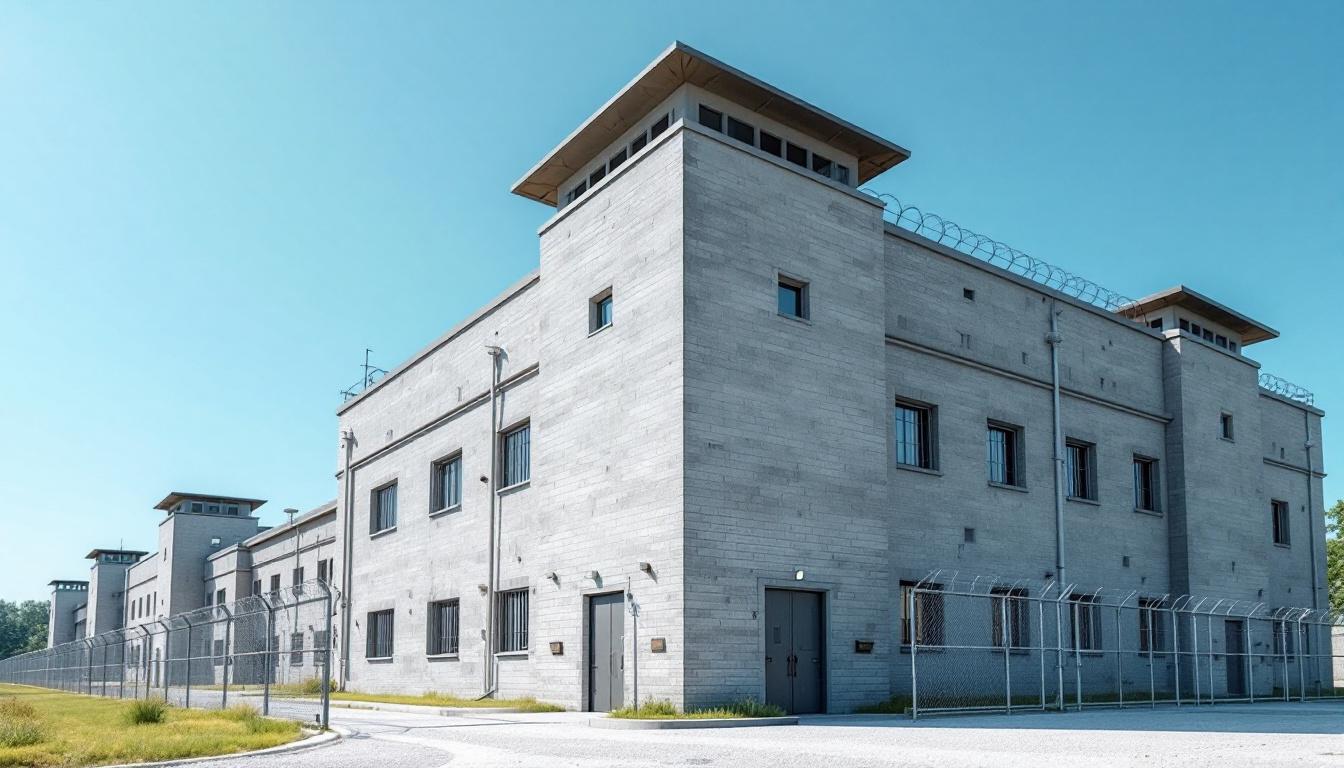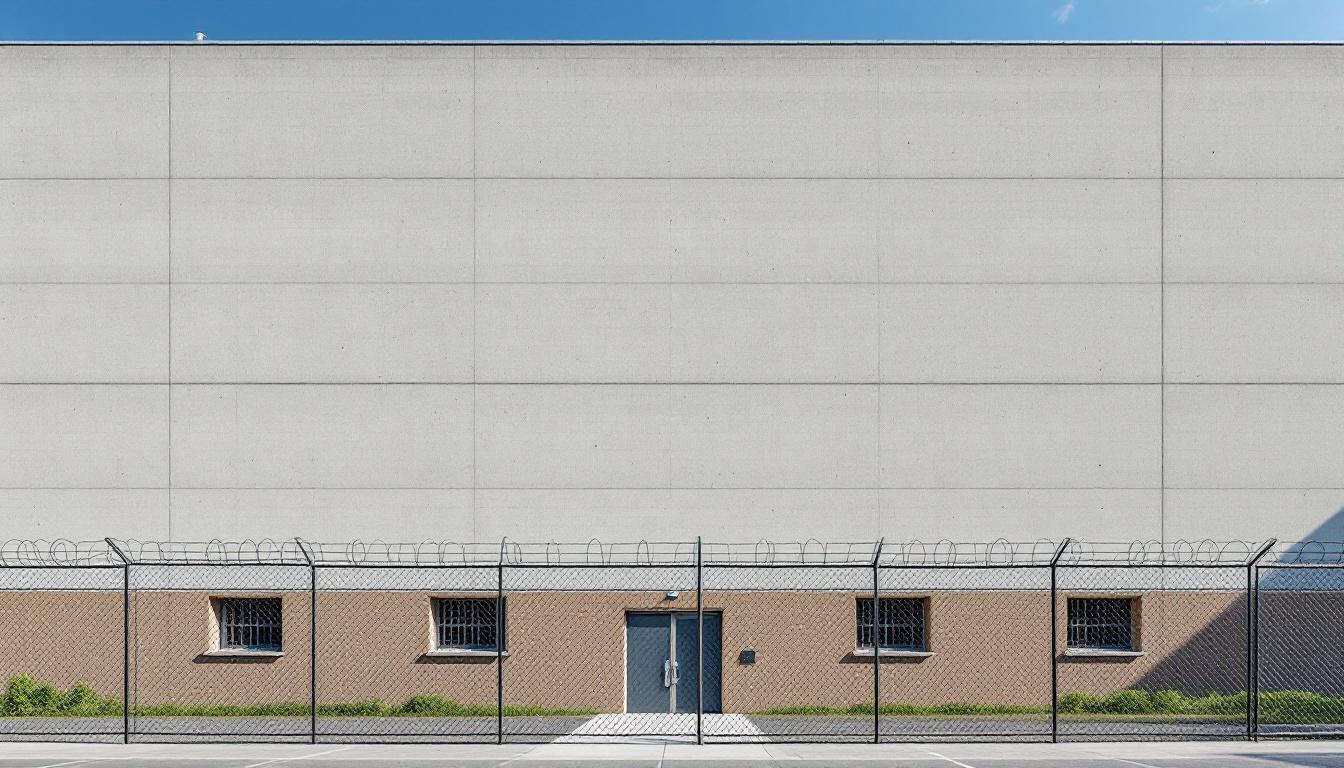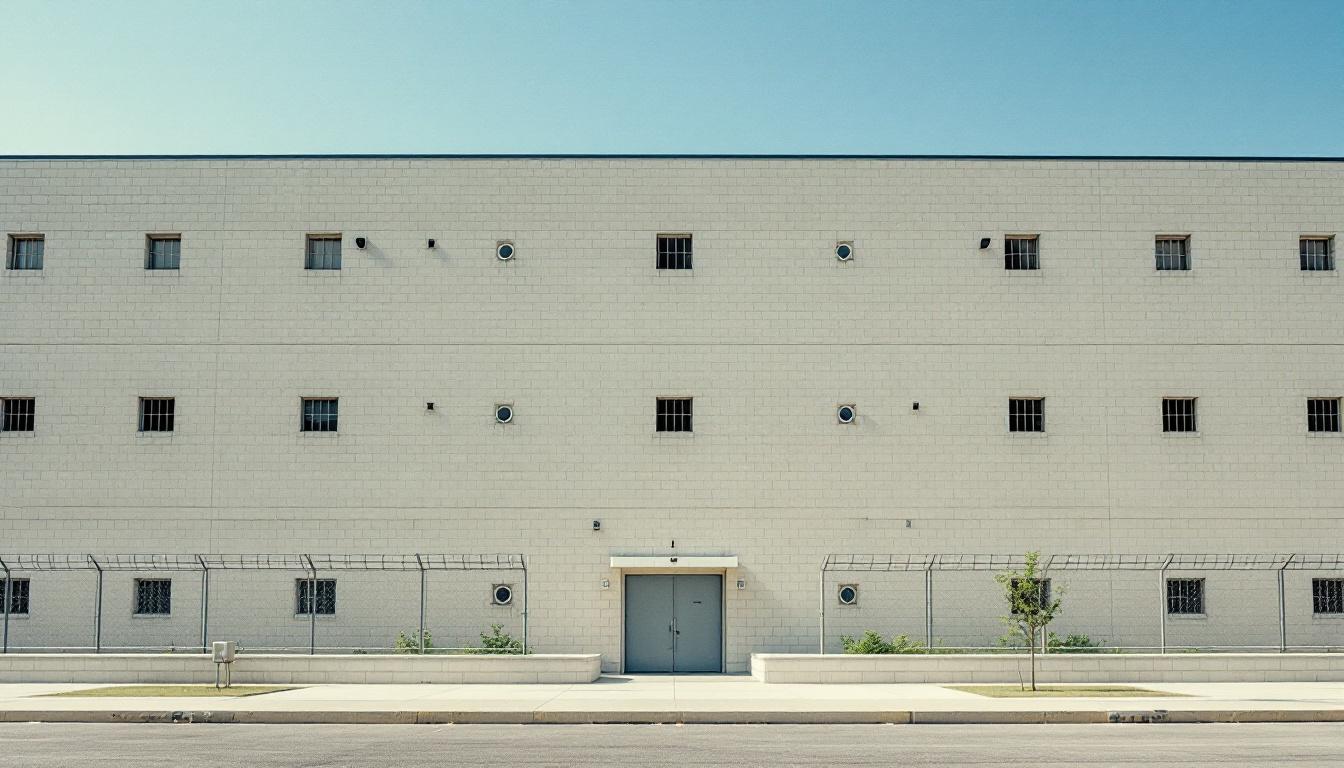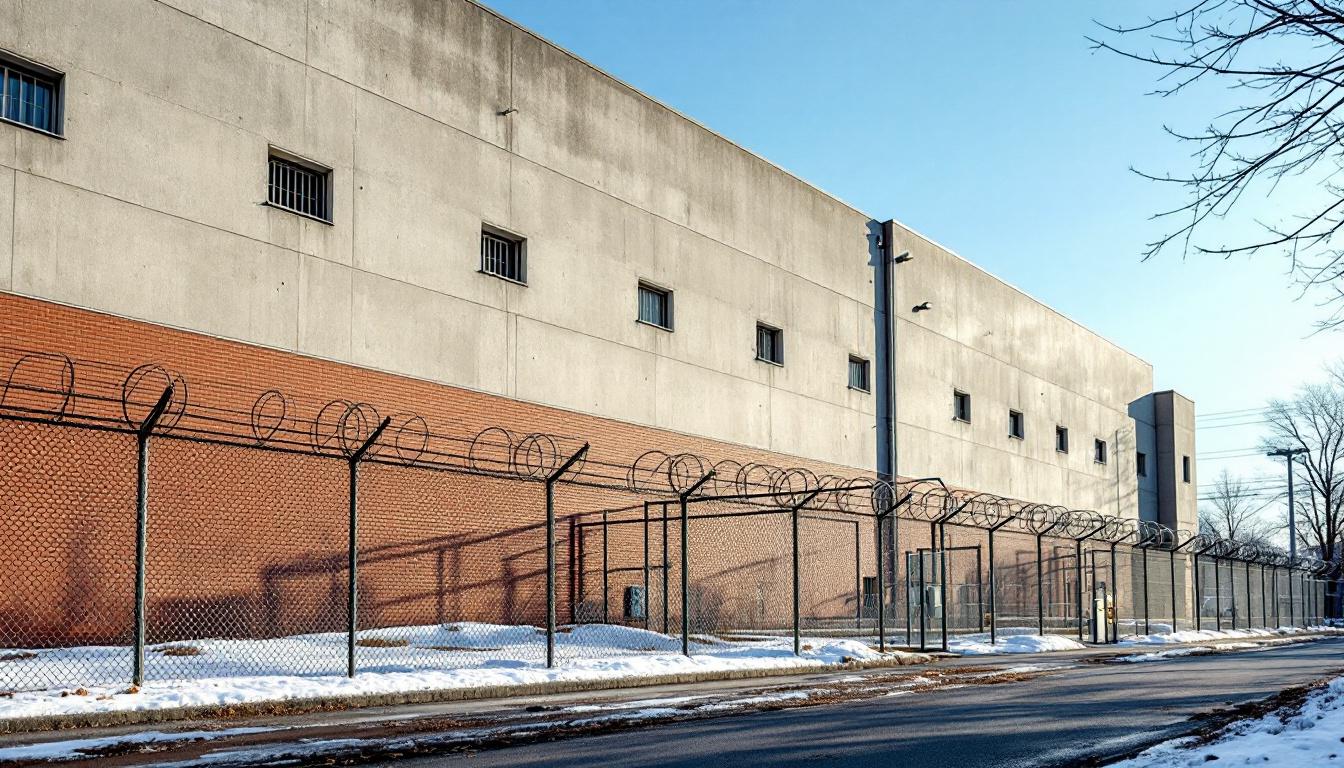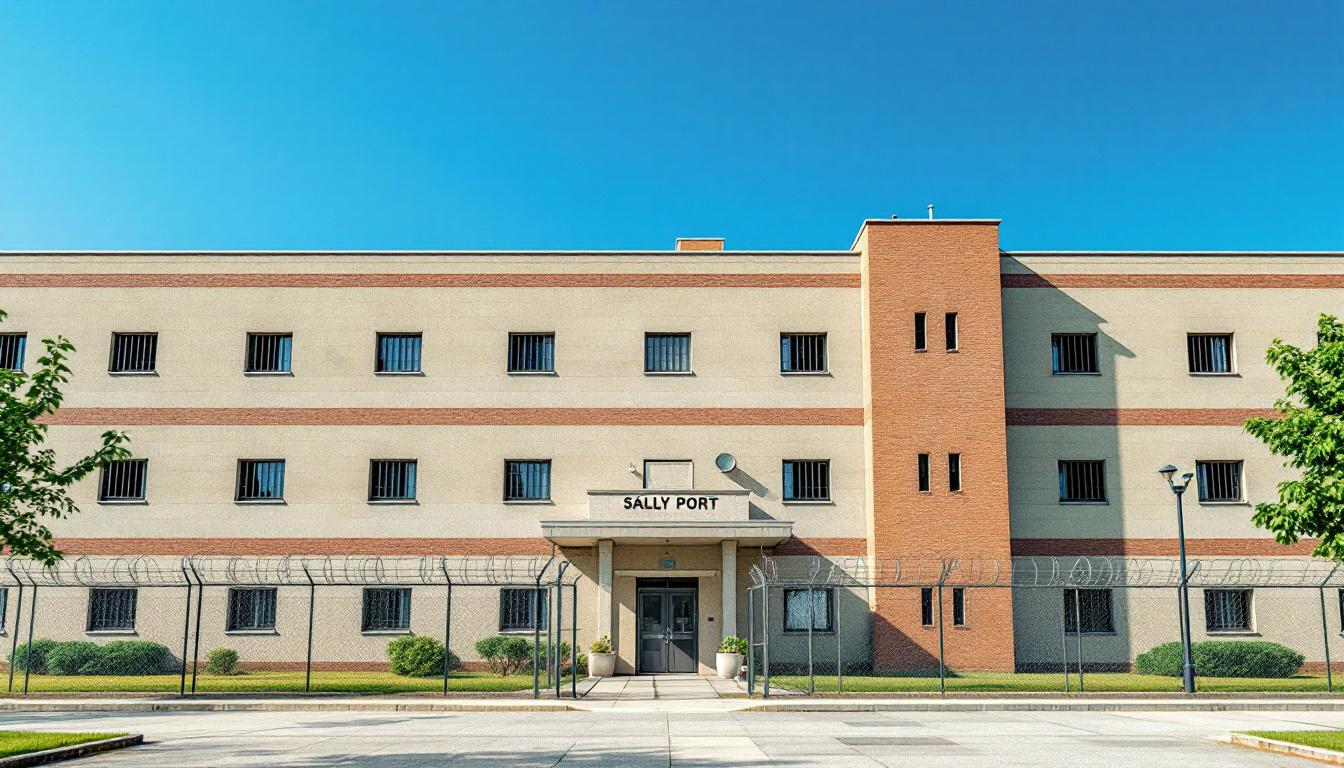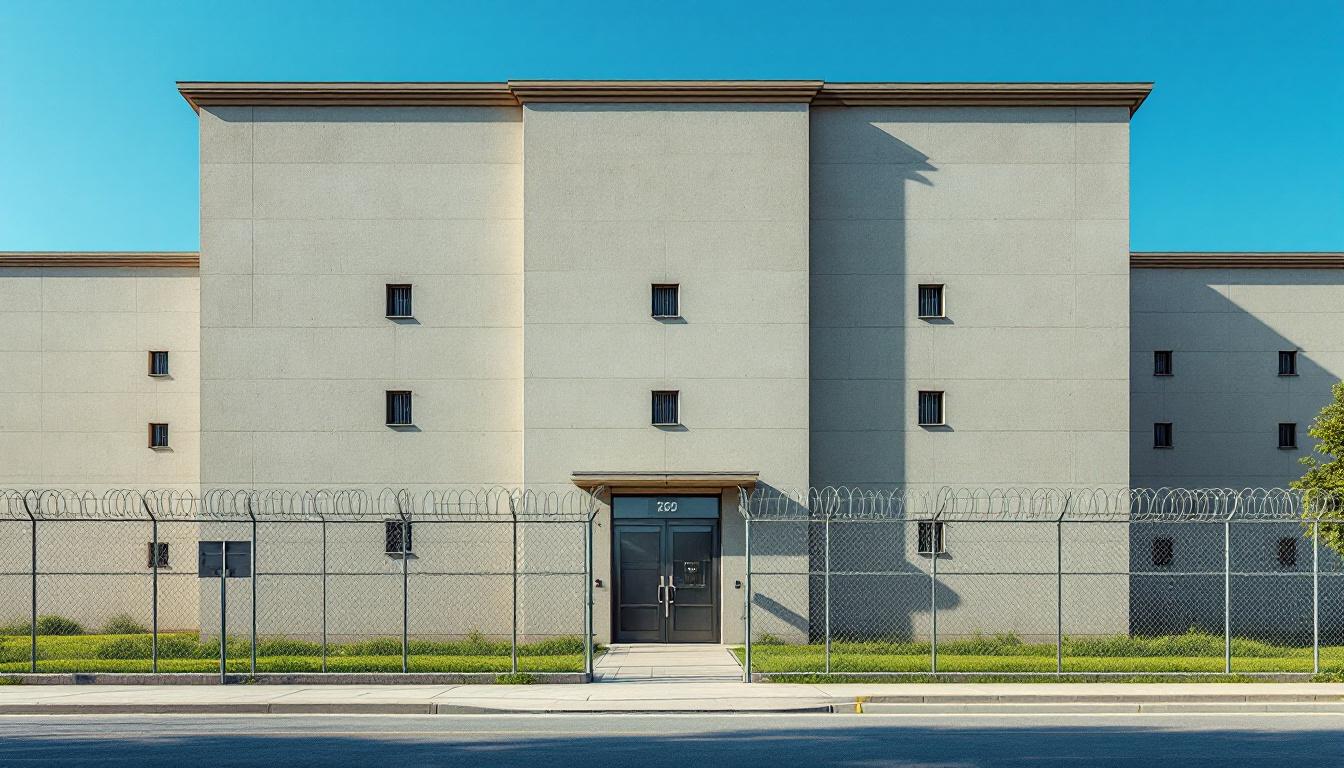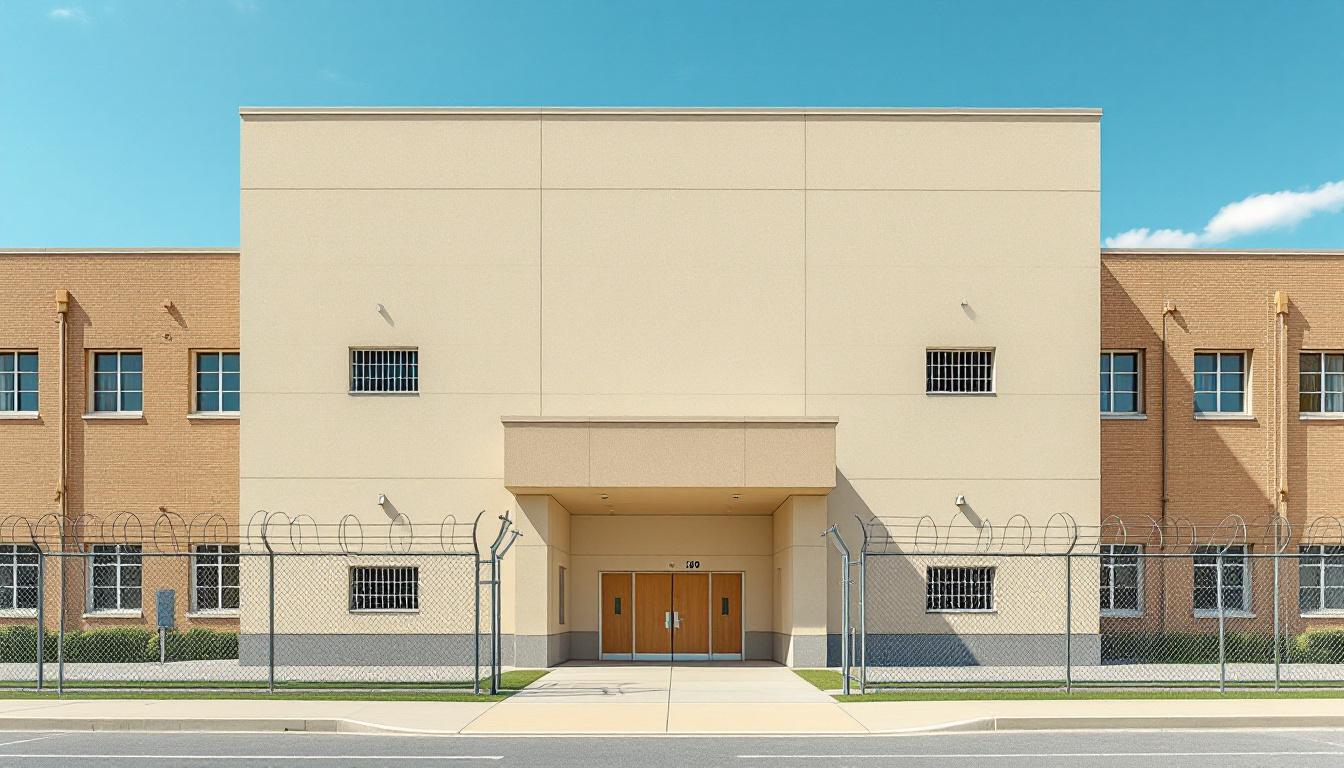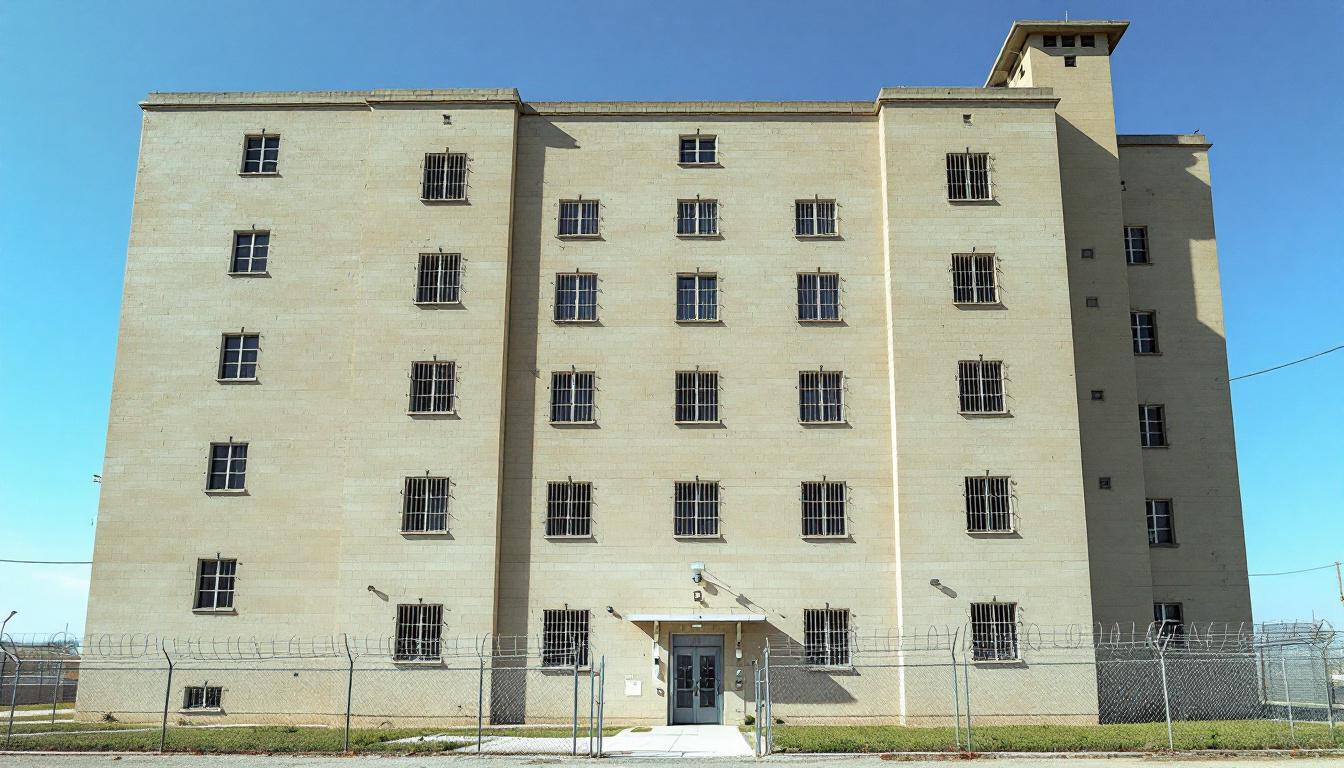
Quick Navigation
How to contact an inmate at Eastern Shore Regional Jail
This comprehensive guide will walk you through how to connect with an inmate at Eastern Shore Regional Jail. Follow the steps below to find an inmate and send letters and photos:
- Search for the inmate using our search tool below
- Create your account or log in to Penmate
- Write your message (up to 6,000 characters)
- Send instantly - inmates receive printed copies daily
Find an Inmate
Search for an inmate to start communicating today
Tip: You can search by first name, last name, or inmate ID number
To contact a person at Eastern Shore Regional Jail start by searching for the person on the facility website. Perform a search by following these steps:
- Step 1: Enter their first name and last name into the search form and click "Search"
- Step 2: Locate their inmate record
- Step 3: Write down their Inmate ID and any housing information provided
Important! Be sure to enter the person's full name. Nicknames should not be used.
How to Send Messages to Inmates

You can use your phone or computer to send emails, letters, and photos to an inmate. Messages are sent electronically to inmate tablets or kiosks at the facility. If you would like to send a message, start by searching for an inmate at Eastern Shore Regional Jail.
Sending Photos and Postcards

A great way to send love and support to a loved one at Eastern Shore Regional Jail is to send photos and postcards. It only takes a few minutes to send photos from your phone and it makes a huge difference. You can also mail postcards with words of support and inspiration, or design your own postcard for special moments like birthdays and holidays.
Important! Be sure not to send any explicit photos or they may not be approved by the facility. You can also use a photo printing app like Penmate to make sure your photos are printed at the correct size (4x6 or 3x5) and are mailed according to the rules and regulations of Eastern Shore Regional Jail.
Frequently asked questions about Eastern Shore Regional Jail
-
How long does it take to deliver a message?
If you're sending an email message your letter is usually delivered within 24-48 hours. For messages sent via mail you should expect delivery within 3-7 days. All messages will need be approved by Eastern Shore Regional Jail.
-
How much does it cost to send a message to Eastern Shore Regional Jail?
You can send a message free using your phone or mail a message via USPS for the price of a $0.60 stamp and envelope. You can also purchase credits or e-stamps from services starting at $1.99.
-
What services can I use to contact an inmate at Eastern Shore Regional Jail?
Penmate
You can use Penmate to send letters and photos to an inmate from your phone. It's an easy way to stay in touch during your loved one's incarceration. Use the inmate locator to find an inmate's location and contact information, then you can send messages within a few minutes.
Securus messaging
Securus may be another option for communicating with an inmate at Eastern Shore Regional Jail. You can create a friends and family account and purchase credits to send messages. All messages will be reviewed and must be approved by the facility.
JPay
Some county jails and state prisons may support sending messages with JPay. You must register an account with the system, find your loved one, and purchase stamps to send messages. For some locations you can also attach photos.
Smart Jail Mail
You may also check if Smart Jail Mail is available at Eastern Shore Regional Jail. Smart Jail Mail is operated by Smart Communications and has contracted with some state and county jails. After purchasing credits, your messages and photos are sent to the facility, printed out, and then handed out to your loved one.
-
What is the mailing address of Eastern Shore Regional Jail?
Mailing address:
Eastern Shore Regional Jail
5245 Hornes St
Eastville, VA 23347
Phone: (757) 678-1362 -
What are the visiting hours at Eastern Shore Regional Jail?
Visiting hours at Eastern Shore Regional Jail vary by housing unit and security level. Generally, visits are scheduled on weekends and holidays, with some facilities offering weekday visits. Contact the facility directly at (757) 678-1362 or check their website for the current visiting schedule. Visits typically last 30-60 minutes and must be scheduled in advance.
-
What items are prohibited when sending mail to Eastern Shore Regional Jail?
Prohibited items typically include: cash, personal checks, stamps, stickers, glitter, glue, tape, staples, paperclips, polaroid photos, musical or blank greeting cards, hardcover books, magazines with staples, and any items containing metal or electronics. Only send letters on plain white paper with blue or black ink. Photos must be printed on regular photo paper (no Polaroids). Always check with Eastern Shore Regional Jail for their specific mail policies.
-
How do I send money to an inmate at Eastern Shore Regional Jail?
You can send money to an inmate at Eastern Shore Regional Jail through several methods: 1) Online using JPay, Access Corrections, or the facility's approved vendor, 2) Money orders mailed directly to the facility with the inmate's name and ID number, 3) Kiosks located in the facility lobby, or 4) Over the phone using a credit or debit card. Fees vary by method, typically ranging from $2.95 to $11.95 per transaction.
-
Can I schedule a video visit with an inmate at Eastern Shore Regional Jail?
Many facilities now offer video visitation as an alternative to in-person visits. At Eastern Shore Regional Jail, video visits may be available through services like Penmate, Securus Video Connect, GTL, or ICSolutions. Video visits typically cost $10-20 for 20-30 minutes and must be scheduled in advance. You'll need a computer or smartphone with a camera and reliable internet connection. Contact the facility for their specific video visitation policies and approved vendors.
-
What identification do I need to visit an inmate at Eastern Shore Regional Jail?
All visitors must present valid government-issued photo identification such as a driver's license, state ID, passport, or military ID. Minors must be accompanied by a parent or legal guardian who can provide the minor's birth certificate. Some facilities require visitors to be on the inmate's approved visitation list, which may require a background check. Contact Eastern Shore Regional Jail for specific ID requirements and visitor approval procedures.
-
How can I find out an inmate's release date?
To find an inmate's release date at Eastern Shore Regional Jail, you can: 1) Use the online inmate search tool if available, 2) Call the facility's records department, 3) Contact the inmate's case manager or counselor, or 4) Have the inmate provide this information during a call or visit. For privacy reasons, some facilities only release this information to immediate family members.
Facility Overview
Contact Information
Eastern Shore Regional Jail5245 Hornes St
Eastville, VA 23347
Phone: (757) 678-1362
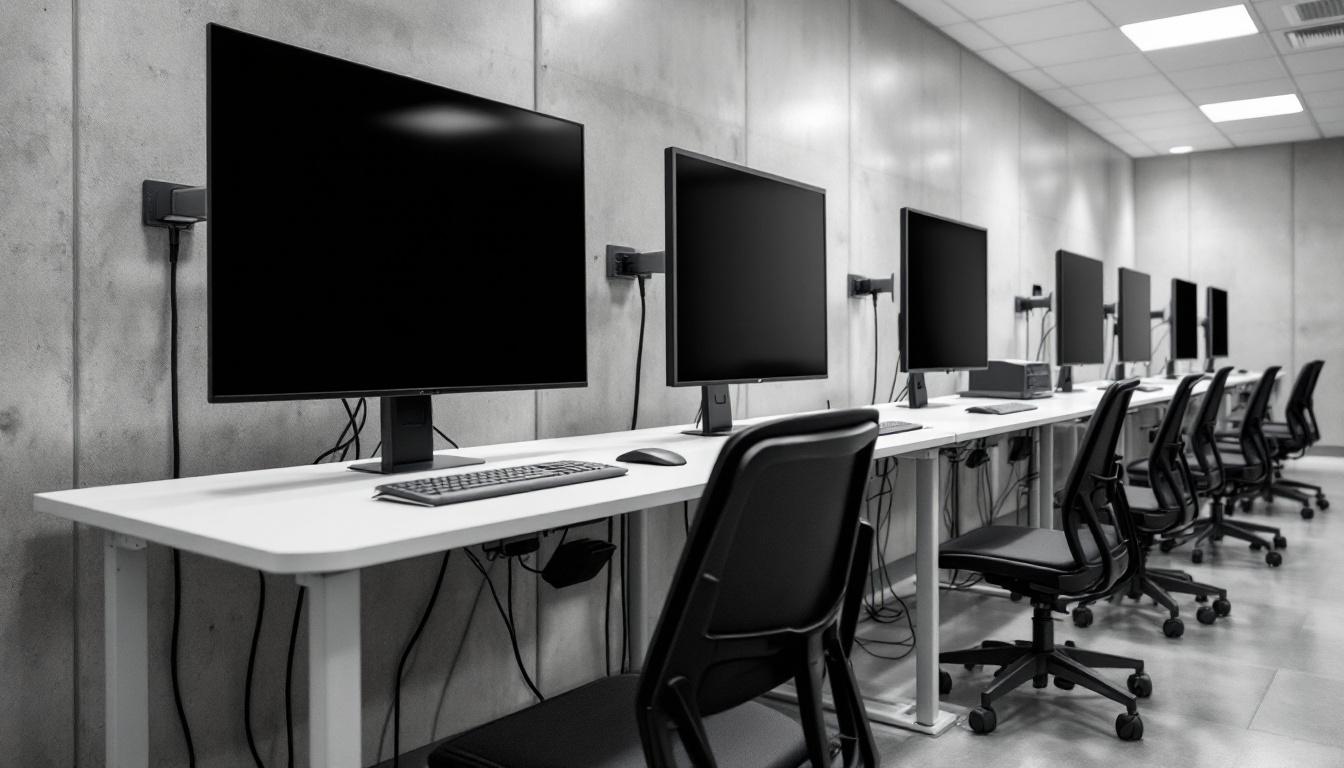
About Eastern Shore Regional Jail
Nestled within the geographic heart of Greensboro, VA, Eastern Shore Regional Jail operates as a significant correctional facility serving the broader eastern Virginia region. This VA correctional facility plays a vital role in the state's comprehensive correctional network, providing secure housing and structured programming for individuals from multiple surrounding counties. The facility's strategic positioning allows it to effectively serve communities across the eastern shore area, functioning as a regional hub that addresses the correctional needs of this distinctive coastal and rural Virginia territory.
The institution typically maintains a comprehensive approach to residents services, emphasizing both security protocols and rehabilitative programming designed to support successful community reintegration. Educational opportunities often form a cornerstone of the facility's programming structure, with basic literacy courses, GED preparation, and vocational training programs frequently available to eligible participants. These educational initiatives generally complement substance abuse counseling, mental health services, and work programs that may include facility maintenance, food service, and other institutional operations that provide practical skills development.
As a county jail serving the eastern Virginia region, the facility generally coordinates with local courts, law enforcement agencies, and community organizations to ensure effective case management and transition planning. The institution's role extends beyond simple detention, typically incorporating pre-release planning services that may include job placement assistance, housing coordination, and connection to community-based support services. This comprehensive approach reflects the facility's commitment to reducing recidivism while maintaining public safety throughout the communities it serves across the eastern shore region.
Programs & Services
Cognitive behavioral initiatives form the cornerstone of rehabilitation efforts, where residents engage in structured therapeutic programming designed to address underlying behavioral patterns and decision-making processes. These evidence-based approaches typically focus on developing critical thinking skills, emotional regulation techniques, and constructive problem-solving strategies that residents can apply both during incarceration and upon reintegration into their communities. The facility may deliver these services through group sessions and individual counseling, creating a comprehensive support network that addresses the multifaceted nature of behavioral change.
Educational and vocational initiatives provide residents with tangible pathways toward personal and professional development during their period of incarceration. Academic programming often includes basic literacy instruction, GED preparation, and continuing education opportunities that allow participants to advance their formal learning. Also, vocational training initiatives may encompass practical skill development in areas such as grounds maintenance, painting and decorating, and other trade-related competencies that enhance employability prospects upon release. These hands-on learning experiences typically combine theoretical knowledge with practical application, ensuring residents develop marketable skills alongside academic achievements.
Support services extend beyond traditional educational offerings to address interpersonal and social challenges that residents may face. Communication skills development initiatives often focus on conflict resolution, effective dialogue techniques, and professional interaction strategies that prove valuable in both personal relationships and workplace environments. Also, specialized programming may deliver targeted interventions for domestic violence awareness and prevention, helping participants understand the dynamics of healthy relationships and develop alternative behavioral responses. These therapeutic initiatives typically operate within a framework that emphasizes personal accountability while providing residents with the tools necessary for successful community reintegration.
Daily Life & Visitation
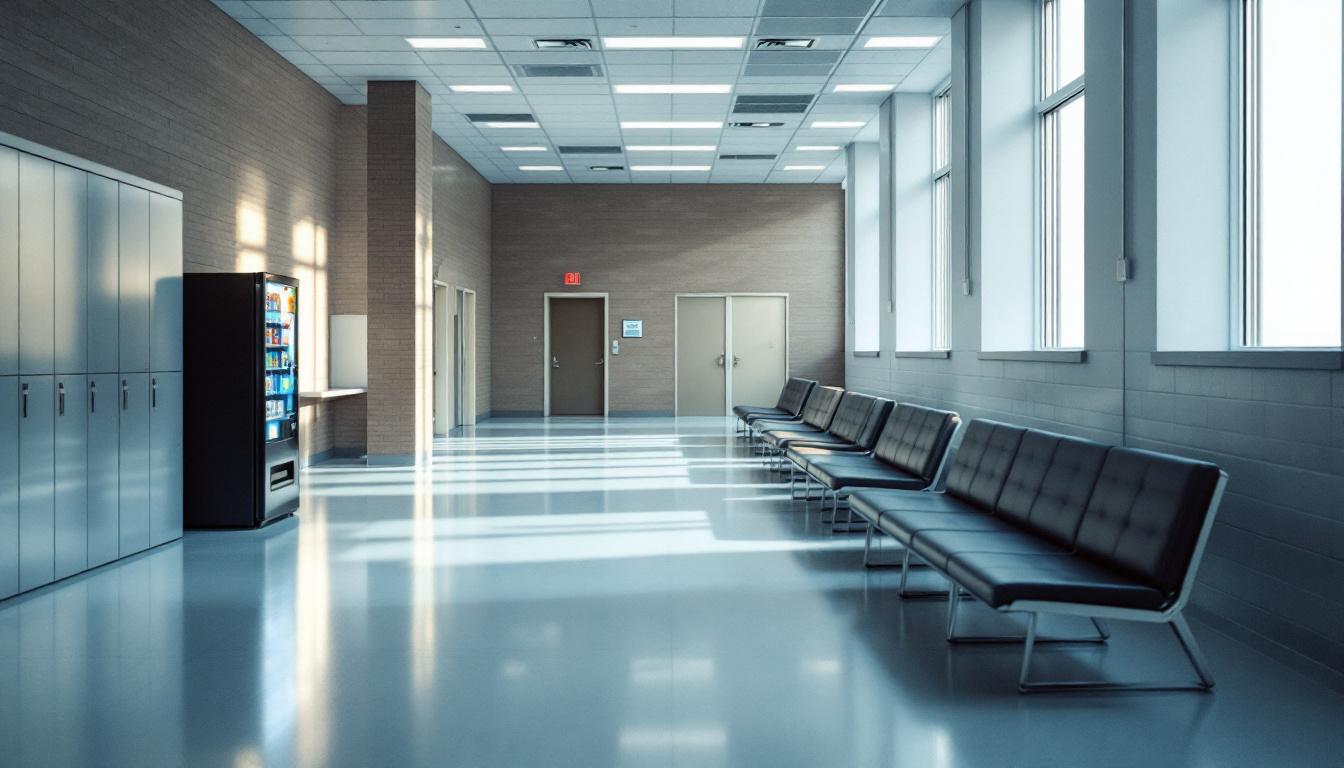
Structured schedules currently anchor every aspect of residential life, creating predictable rhythms that help residents navigate their time with greater certainty and purpose. The facility continues to maintain consistent daily routines that typically begin with early morning counts and meal service, followed by scheduled work assignments, programming activities, and designated recreation periods that deliver stability throughout each day.
Housing units generally accommodate residents in dormitory-style or multi-occupancy cells, with basic furnishings including beds, storage areas, and shared bathroom facilities. Also, residents typically have access to common areas within their housing units where they may watch television, play games, or socialize during designated free time periods. Personal property allowances usually include essential items like clothing, hygiene products, and limited personal effects, while commissary services generally provide opportunities to purchase additional approved items using funds from their accounts.
Work assignments often include kitchen duties, facility maintenance, laundry services, and cleaning responsibilities that help residents develop job skills while contributing to daily operations. However, structured programming schedules may also deliver educational classes, substance abuse counseling, life skills training, and religious services that support personal development goals. Family connections typically remain important through scheduled visitation periods, phone calls, and correspondence, with visiting arrangements generally following established security procedures and scheduling requirements that help maintain these vital support systems throughout a resident's stay.
Ready to Connect?
Start communicating with your loved one today
Search for an Inmate
